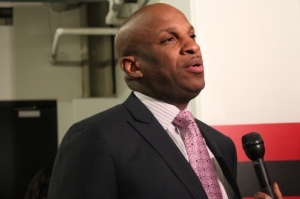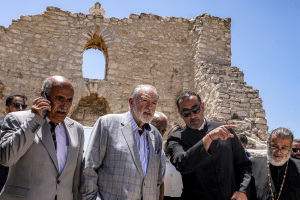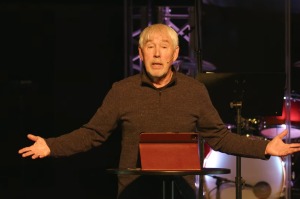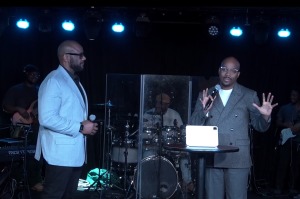Korea Peace Efforts Highlight Anglican Church's Potential at 'Its Best'
The Anglican peace conference in Korea ended on a high-note Tuesday with leaders "encouraged" and filled with hope in the potential of the church for the reconciliation of the peninsula.
"A conference like this fills you with hope that people of good will can make a difference. We surely need such signs of hope amidst an often discouraging and all too violent world," noted the Rev. Canon Brian Grieves, Episcopal director of Peace and Justice Ministries, according to the Episcopal News Service.
More than 150 primates (Anglican leaders), clergy and lay leaders from the Anglican Communion gathered for the international Towards Peace in Korea (TOPIK) conference held in Paju, near Seoul, Nov. 14-20.
Participants began with a visit to North Korea followed by discussions in South Korea on Korean experiences of war and forgiveness, conflict and reconciliation, and ways to help establish permanent peace in Northeast Asia.
Anglican leaders agreed that peace and reconciliation in Korea will require a shared process for governments, religious denominations, and social systems.
"TOPIK has certainly placed the issue of reunification of the Korean Peninsula high on the agenda of the Anglican Communion," Grieves noted.
Kirsten Laursen Muth, senior program director for Episcopal Relief and Development (ERD), said the TOPIC conference highlighted "the work and the potential of our church at its best."
"There are so many places of brokenness in our world today; some we hear or see everyday; others are almost forgotten; too few are understood," Muth said.
Some observed that the conference provided an opportunity for participants to share in the pain and suffering of victims of war and conflict.
"Division is a way of life in Korea," said The Episcopal Church Presiding Bishop Katharine Jefferts Schori. "Barbed wire and military posts are abundant in the south as well as in the north. Fear of brothers and sisters has been the norm for more than 50 years, even though there is significant energy and movement toward reunification in parts of Korean society.
"The tension between the yearning for reunion and the fear and suspicion of those long understood to be enemies is profound and can only engender compassion," the American church head added.
Yet Asia is in a "rare" era of reconstruction that offers the Koreas a chance to reconcile, according to Professor Sung-Ryoul Cho of the Research Institutes for International Affairs highlighted
"North and South Korea are facing two options: one being choosing the different roads and re-experiencing the miserable hike of separation on different paths, and the other being a hike in heading towards the grand unification of the Korean race on the same road," he said.
But the decision to reunify does not solely rest on the two Koreas. Four "great powers" – the United States, Japan, China and Russia – need to cooperate in order for peace to be established on the peninsula, according to John L. Lee, minister of Unification of South Korea.
Peter Ng, partnership officer for Asia and the Pacific, concluded: "The forum is an invitation for all of us in the Anglican Communion to work with our brothers and sisters around the world to work for peace, especially for the peace and reconciliation of the conflict on the Korean Peninsula.
"Each one of us has the opportunity and a responsibility to do our part to spread love and understanding among the people around us and to work against hate and oppression of others in our global community."
























